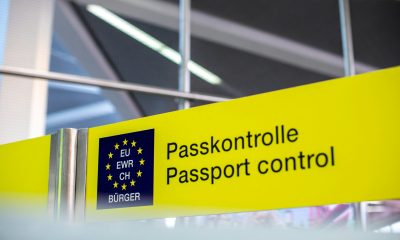Bancar
Parlamentul: supraveghează # supraveghetori EE


Andrea Enria (foto) received the support of MEPs on 29 November to become the chair of ECB supervisory board in charge of monitoring the health of the EU's largest banks.
Enria received the backing of Parliament's economic committee for the post on 20 November. The 57-year old Italian, who is currently the head of the European Banking Authority, will also need the support of the Council to replace Danièle Nouy as the chair of bank supervision, starting on 1 January 2019.
Bank supervision at EU level
The European Central Bank (ECB) started carrying out supervisory functions in 2014 in a first step towards the establishment of a uniune bancară in Europe. While in the past all banks were subject to supervision by their national authorities, the decision to set up a single supervisory mechanism placed the banks considered most significant for the euro area under the direct supervision of the ECB.
The move aimed to ensure banks were sound, the whole system was stable and that the same requirements applied to every big player.
În prezent, Bănci 118 are under the ECB's direct supervision and the list is constantly updated. These banks are either the largest in their home country, have more than €30 billion in total assets or have substantial cross-border operations. Other, less significant banks remain under the supervision of national banking authorities.
As a supervisor, the ECB has the authority to carry out inspections to check banks' compliance with EU rules, demand banks set aside additional capital to mitigate risks and can even withdraw banking licences.
BCE este accountable to the Parliament for the execution of its supervisory tasks. It drafts an annual report on banking supervision that is presented to MEPs in a public hearing. The chair of the supervisory board comes regularly to meetings of the economic committee to answer questions from MEPs.
Lucru de făcut
Many banks in the EU were hit hard by the economic and financial crisis that started in 2008. Some are still struggling to deal with loans that are not being repaid.
In his statement in front of the economic committee on 20 November, Enria said cleaning bad assets from bank balance sheets and promoting integration in the sector as his two priorities for the job. “The banking union will not survive, if the next crisis catches us still dealing with a legacy of bad assets from the previous one or with a market segmented along national lines,” he said.
Enria also sought to dispel the idea that banks may be too big to be allowed to go bankrupt. “Banks may well fail... default of a bank is not necessarily a failure of the supervisor,” he said.
Trimiteți acest articol:
-

 Conflictezile în urmă 4
Conflictezile în urmă 4Kazahstanul intervine: eliminarea diviziunii dintre Armenia și Azerbaidjan
-

 Extinderezile în urmă 4
Extinderezile în urmă 4UE își amintește de optimismul de acum 20 de ani, când 10 țări s-au alăturat
-

 automobilismzile în urmă 4
automobilismzile în urmă 4Fiat 500 vs. Mini Cooper: o comparație detaliată
-

 Kazahstanzile în urmă 5
Kazahstanzile în urmă 5Un autor kazah de 21 de ani prezintă o carte de benzi desenate despre fondatorii kazahului Khanate

























